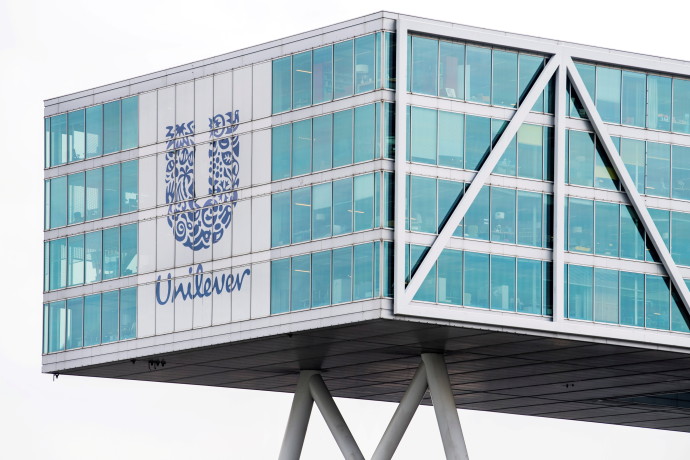Ben & Jerry’s will no longer boycott Israel, its parent company Unilever announced on Wednesday, after reaching a settlement with the ice-cream company’s Israeli licensee.
Unilever sold all of its Ben & Jerry’s business interests in Israel to Avi Zinger, owner of the licensee American Quality Products Ltd., allowing him to sell Ben & Jerry’s under its Hebrew and Arabic names throughout sovereign Israel and Judea and Samaria.
The Vermont-based ice-cream company announced that it would no longer allow its products to be sold to Israelis in the West Bank last July. The boycott, in effect, was against all of Israel because of local laws against location-based discrimination that would not have allowed Zinger to limit his sales to one side of the Green Line.
Following Ben & Jerry’s announcement, Jewish and pro-Israel organizations took action, protesting the decision and trying to find legal ways around it. Several states that have laws meant to discourage the Boycott, Divestment and Sanctions (BDS) movement began the process of divesting or stopping to purchase products from Unilever.
In addition, the Foreign Ministry entered negotiations with Unilever, and the Louis D. Brandeis Center for Human Rights Under Law represented Zinger in a lawsuit filed in the US District Court of New Jersey.

Unilever’s acquisition agreement of Ben & Jerry’s allowed the ice-cream company’s board to determine its “social mission,” while the parent company was responsible for its financial and operational decisions. Unilever sought a solution that would reverse the Israel boycott while keeping its commitment to the Ben & Jerry’s board in Vermont. The board is still free to maintain its political position against Israeli settlements, but it cannot stop Zinger from selling Ben & Jerry’s ice cream under the new agreement.
“Unilever has used the opportunity of the past year to listen to perspectives on this complex and sensitive matter and believes this is the best outcome for Ben & Jerry’s in Israel,” the company stated. “Unilever rejects completely and repudiates unequivocally any form of discrimination or intolerance. Antisemitism has no place in any society. We have never expressed any support for the Boycott Divestment Sanctions movement and have no intention of changing that position.”
"Unilever rejects completely and repudiates unequivocally any form of discrimination or intolerance. Antisemitism has no place in any society. We have never expressed any support for the Boycott Divestment Sanctions (BDS) movement and have no intention of changing that position."
Unilever statement
Unilever also pointed out that it has invested more than one billion shekels in its business in Israel.
“We look forward to continuing to make a positive contribution to Israel’s economy and society for many decades to come, and hope that Israelis and Palestinians can reach a peaceful resolution of their conflict,” the statement reads.
Zinger thanked Unilever for resolving the matter and opposing BDS.
“There is no place for discrimination in the commercial sale of ice cream,” Zinger said. “BDS lost. I now have the right to sell Ben & Jerry’s using its Hebrew and Arabic name... forever. This is a victory for those who seek cooperation and coexistence, and a resounding defeat for discrimination.”
Foreign Minister Yair Lapid and Economy Minister Orna Barbivay praised Unilever’s decision, which “not only ensures that the Ben & Jerry’s factory in Israel and its diverse staff will be protected, but that customers of the company – Jews and Muslims, Israelis and Palestinians – will not be subject to attacks by a delegitimization campaign against Israel.
“This is an important victory of values against discrimination and antisemitism that is at the heart of the campaign to boycott Israel,” the ministers added.
Lapid discussed the matter with Unilever CEO Alan Jope and Zinger in recent days.
Earlier this month, activist investor Nelson Peltz joined Unilever’s board after his investment firm Trian Fund Management LP bought a 1.5% share in the company.
Peltz is a philanthropist and the honorary co-chairman of the board of the Simon Wiesenthal Center, which put Unilever on its top-10 list of worst antisemitism around the world for 2021, after Ben & Jerry’s announced it would no longer sell ice cream in settlements.
